On March 29, 2023, the 2th BMS Forum on the Frontiers of Future Life Medicine was held online and offline. Over 7,800 people participated online through the livestreaming platform of Brainnews and the Chinese Neuroscience Society, and more than 60 teachers and students attended in person offline.

This forum has invited three internationally well-known experts to give thought-inspiring academic reports, including Prof. Yutian Wang, Dean and Chair Professor of Faculty of Life and Health Sciences of Shenzhen Institute of Advanced Technology, Chinese Academy of Sciences (hereinafter referred to as SIAT), Prof. Keqiang Ye, Department Chair and Endowed Chair Professor of SIAT, and Prof. Xia Zhang, director of Institute of Neuropsychiatric Diseases of Qingdao University.
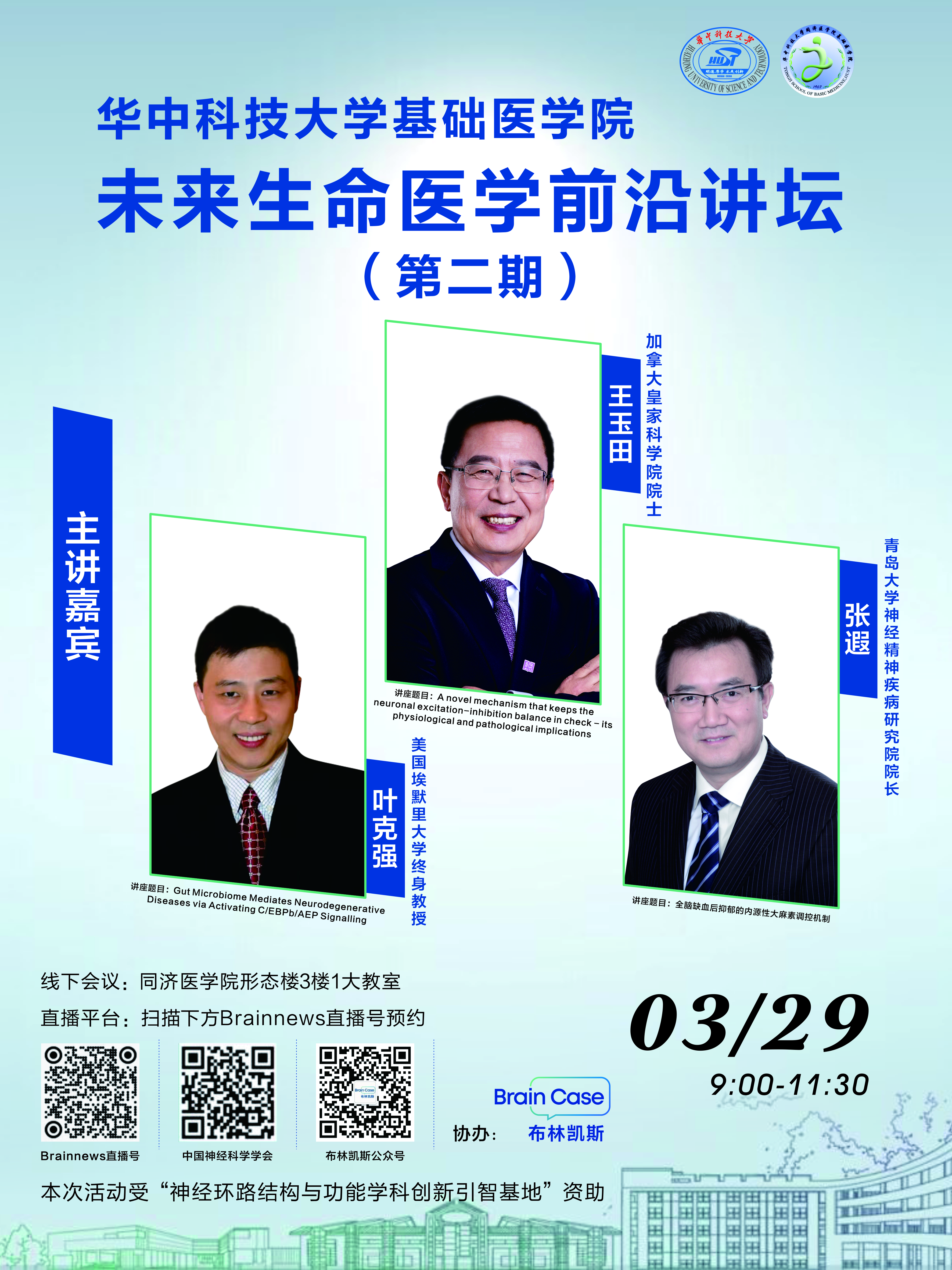
At the beginning of the Forum, Prof. Youming Lu from the School of Basic Medicine, Tongji Medical College, Huazhong University of Science and Technology delivered an opening remark. He firstly greeted the three guest speakers and gave a warm welcome to teachers and student present. Prof. Lu said that in the post-epidemic era, the School of Basic Medicine will manage to restart all kinds of activities that were interrupted by the epidemic. This forum represents the first step to regularize offline international academic activities. We expect that more scholars can pay a visit in person and discuss the frontier progress in the field of neuroscience research.
Prof. Shengxi Wu from Air Force Medical University of PLA briefly introduced the first speaker Prof. Keqiang Ye, after which Prof. Ye gave a lecture entitled "Gut Microbiota Mediates Neurodegenerative Diseases via Activating C/EBPβ/AEP Pathway". In his report, Prof. Ye revealed that Colonization with gut microbiota from SPF mice or AD patients activates CEBPB/AEP signaling in germ-free 3×Tgmice, promoting AD pathologies and cognitive deficits. DSS treatment promotes gut leakage and facilitates AD-like pathologies in both the gut and the brain of 3xTg mice in a C/EBPB/8-secretase-dependent manner. Vagotomy selectively blunts this signaling, attenuates Aβand Tau pathologies, and restores learning and memory.
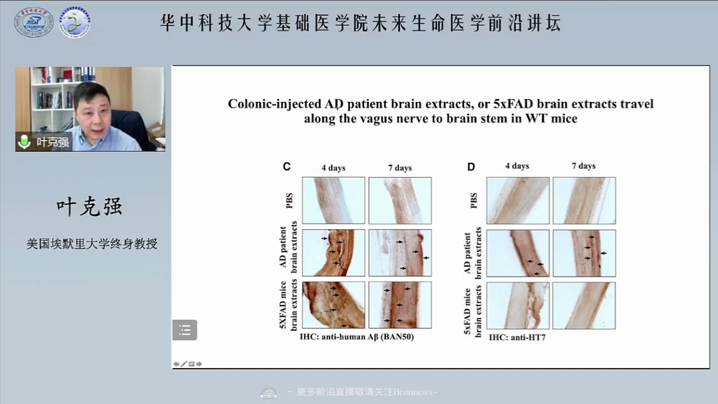
Next, Prof. Yun Xu from Gulou Hospital of Nanjing University introduced the second speaker Prof. Xia Zhang who used to be a faculty member of University of Ottawa until 2020. Prof. Zhang's lecture is entitled "the mechanisms of endogenous cannabinoid therapy in post-global cerebral ischemia depression". Prof. Zhang's team has conducted systematic research on the cannabinoid regulation mechanism of brain function and disease over the past 23 years. Prof. Zhang firstly reviewed the history of cannabinoid research, and then explained the significance of studying PGCID. Cardiac arrest is one of the most common cause of death worldwide, and up to 45% of cardiac arrest survivors experience post-global cerebral ischemia depression. However, its treatment still remains unknown. Prof. Zhang gave a detailed introduction of how his team conducted in-depth research on the mechanism and treatment of PGCID by using endogenous cannabinoid release probes and CB1 receptor photoactivation probes.
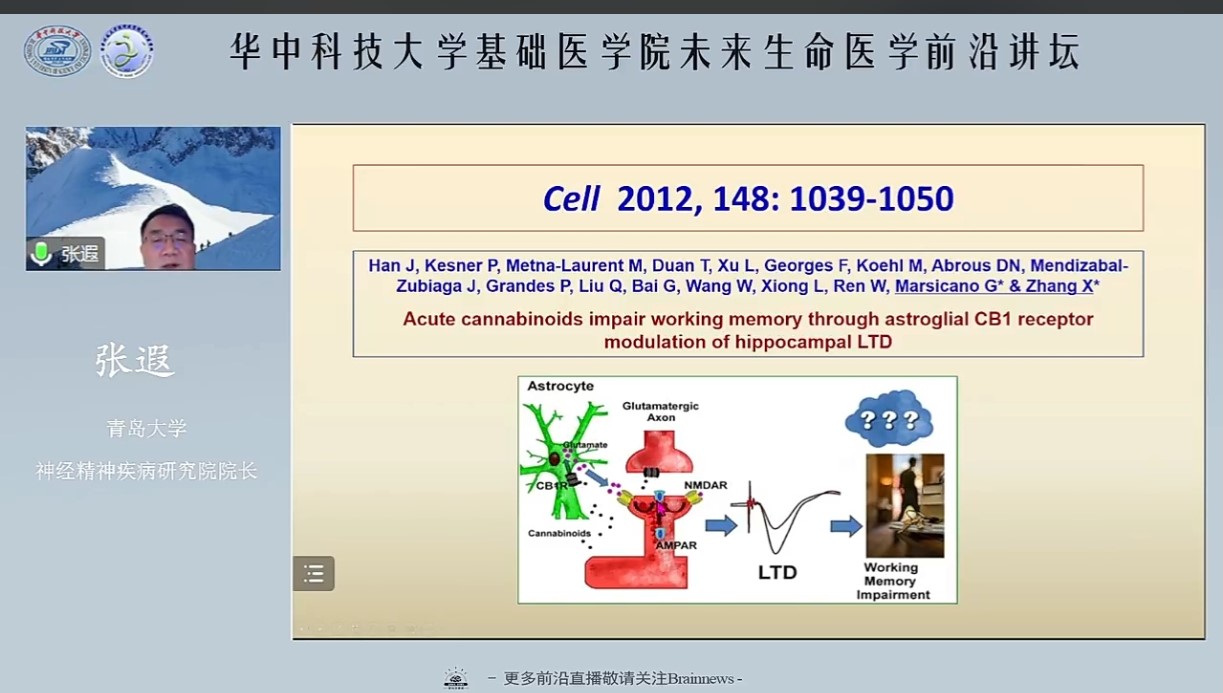
Last but not least, Prof. Lingqiang Zhu from School of Basic Medicine of HUST warmly welcomed the last speaker Prof. Yutian Wang who shew up in person. Prof. Wang is Fellow of the Academy of Sciences of Royal Society of Canada since 2006 and the first holder of the Heart and Stroke Foundation of BC and Yukon Chair in Stroke Research. Dr. Wang's research focuses on understanding the molecular mechanisms responsible for regulating the function and intracellular trafficking of glutamate and GABA receptors in brain function and dysfunction. This time Prof. Wang gave a lecture entitled "A surprising cross-talk between excitatory glutamatergic and inhibitory GABAergic synaptic transmissions-its physiological and pathological implications". He pointed out that maintaining a proper level of synaptic excitation-inhibition balance is required for normal brain functioning and its imbalance contributes to the pathogenesis of many brain disorders including neurodegenerative diseases and mental illnesses. Prof. Wang's team identified a novel glutamate binding pocket in the GABAAR, at which glutamate allosterically potentiates GABAAR's function. His team slao found that genetic impairment of this glutamate potentiation in knock-in mice resulted in phenotypes of increased neuronal excitability, including decreased thresholds to noxious stimuli and increased seizure susceptibility. These results demonstrate a novel cross-talk between excitatory glutamate and inhibitory GABAAR. It plays an essential homoeostatic role in fine-tuning the excitation-inhibition balance, thereby maintaining neuronal excitability in the mammalian brain under both physiological and pathological conditions.
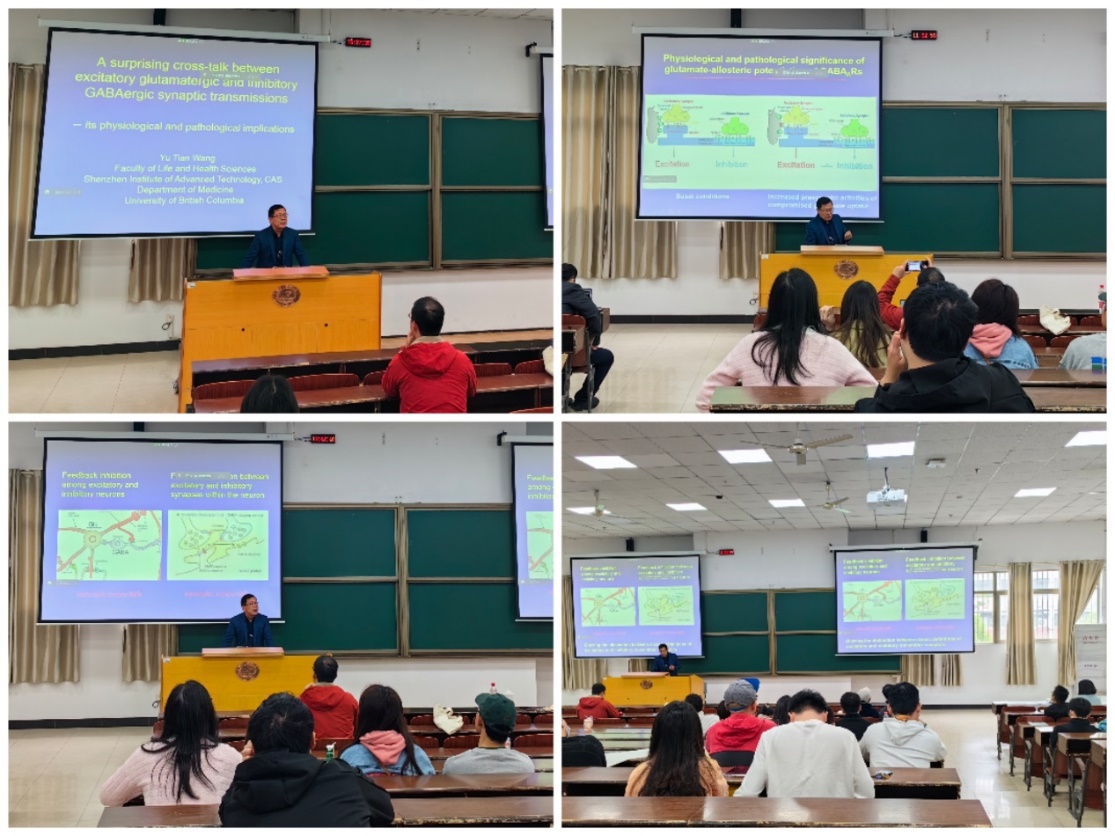
Attendees actively asked questions and has an in-depth conversation with the speakers after their wonderful reports. All the students and faculty at the venue said that they have benefited greatly from this forum.
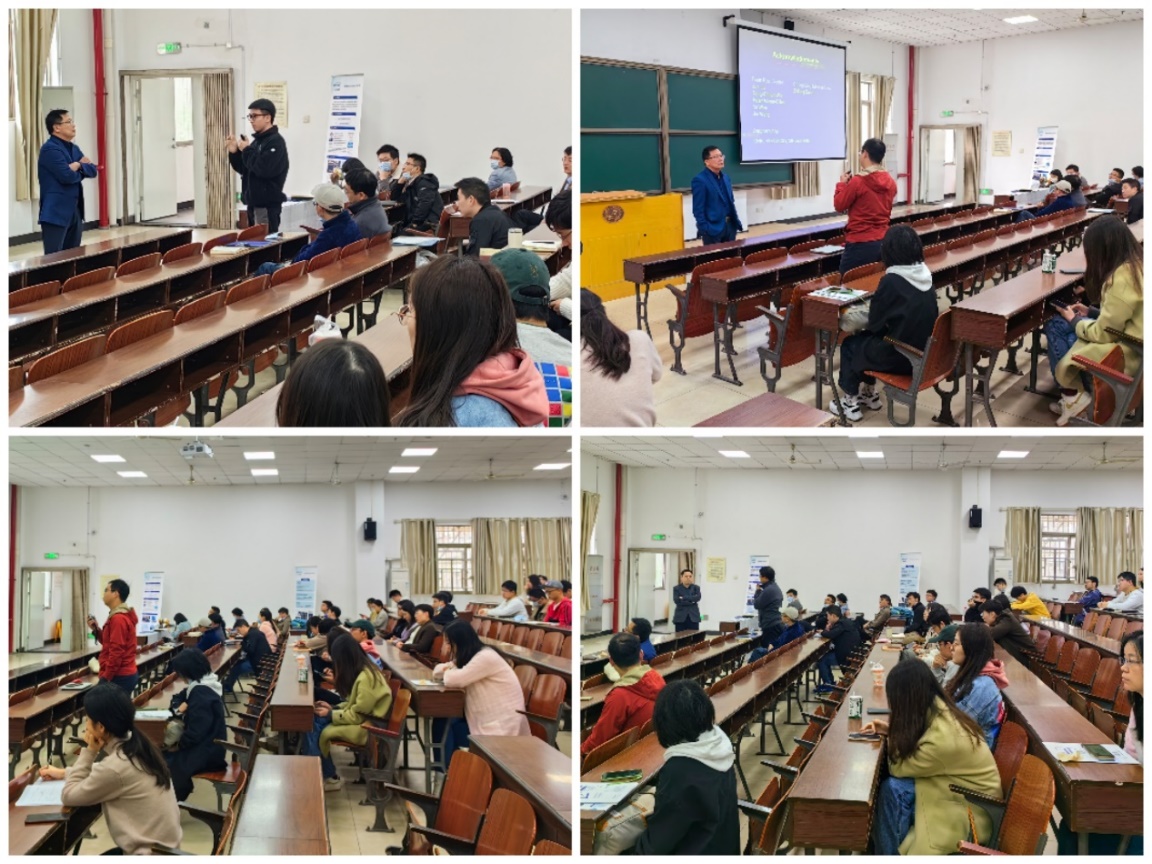
School of Basic Medicine managed to launch the BMS Forum on the Frontiers of Future Life Medicine in 2022 and tries to build it into a sustainable platform based on which a series of high-level international academic activities will be organized. It is hoped that this forum can bring together renowned scholars in the field of neuroscience worldwide to share cutting-edge knowledge. More importantly, scholars can take this opportunity to enhance communication and mutual trust, and explore the potential for in-depth scientific cooperation, thus laying a solid foundation for jointly overcoming major global problems.